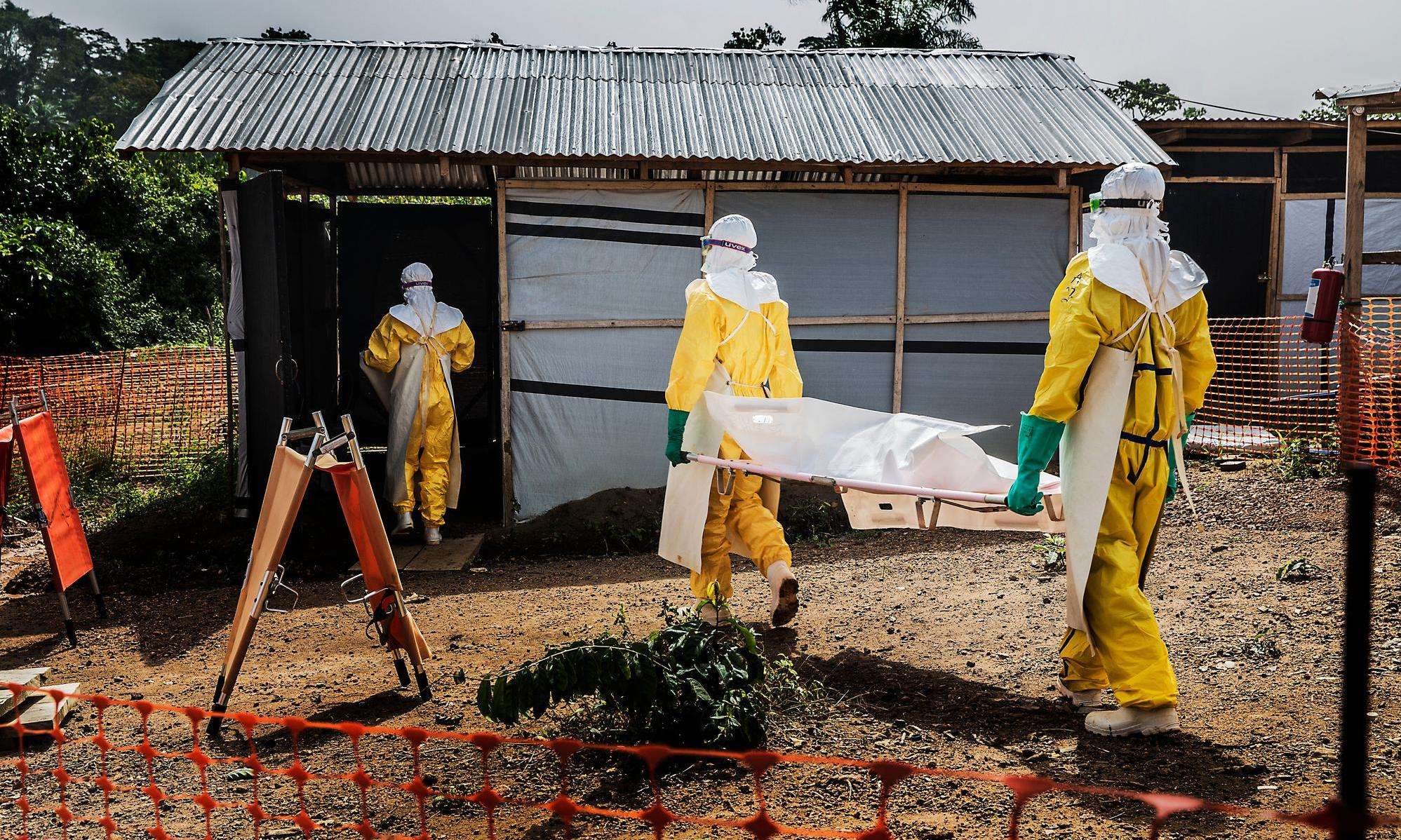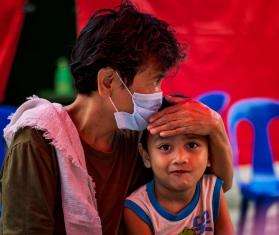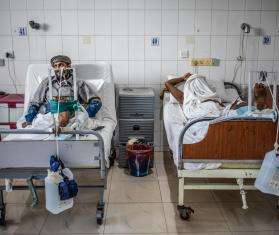NEW YORK/GENEVA/BRUSSELS, March 26, 2024—As the world marks 10 years since the deadliest Ebola outbreak that killed more than 11,000 people in West Africa, the international medical humanitarian organization Doctors Without Borders/Médecins Sans Frontières (MSF) warned today that, while two treatments now exist, they are still not readily available, including in countries where Ebola is endemic.
Instead, all Ebola treatments remain under the control of just two US pharmaceutical corporations, Regeneron and Ridgeback Biotherapeutics, and are almost exclusively kept in a US stockpile for national security and biodefense purposes.
An international emergency stockpile of treatments must be created and run by the International Coordinating Group (ICG) on Vaccine Provision to ensure treatments can always be provided at short notice to anyone, anywhere who needs them, said MSF.
“Ten years ago, the world was not prepared for the outbreak of Ebola virus disease in West Africa,” said Dr. Armand Sprecher, public health specialist at MSF. “There were no antiviral treatments, and this made it hard to convince sick people to come to the treatment units. There were no vaccines, so protecting people was limited to trying to convince them to change their behavior. This made it difficult to control the outbreak. Now that there are effective antiviral treatments and vaccines, we can save lives, prevent illness, and control outbreaks, but only if these are fully available for the people who need them. That’s why we are calling for an emergency stockpile.”
For half a century following the first outbreak ever recorded, no treatments for Ebola existed, partly because pharmaceutical corporations don’t see the value in investing in diseases that affect poorer populations. It was only during the West African Ebola outbreak—amid the threat of Ebola spreading more widely—that people in the US and Europe began paying attention and started funding the research and development (R&D) of Ebola treatments and vaccines.
Two treatments were approved by the US Food and Drug Administration in 2020, after more than $800 million in taxpayer funding and other contributions from affected country governments, NGOs, and academic institutions—which hosted or facilitated clinical trials—as well as patients and survivors who directly participated in testing the treatments. These treatments were recommended for use during outbreaks by the World Health Organization (WHO) in 2022 and are now included on the WHO Model List of Essential Medicines. There are now also two vaccines, which are essential to preventing and responding to an Ebola outbreak.
The treatments—REGN-EB3 (atoltivimab/maftivimab/odesivimab), marketed by Regeneron as Inmazeb, and mAb114 (ansuvimab), marketed by Ridgeback as Ebanga—remain largely inaccessible to the people who need them. While there are many challenges to the rapid deployment of treatments in an Ebola outbreak, the fact that only one-third of patients received either treatment in the five outbreaks that have occurred since the medicines were approved is, in large part, due to the treatments not being readily available where outbreaks most often occur. Regeneron and Ridgeback retain private control of these treatments through patents and licensing, and almost all available treatments are held and controlled by the US.
“One clear lesson learned from the past ten years is that relying only on the goodwill of private corporations or governments is not the solution to an access-to-medicines problem,” said Dr Márcio da Fonseca, infectious disease advisor for MSF’s Access Campaign. “To make today’s and tomorrow’s Ebola treatments and preventive tools more widely available, global access conditions must be attached early in the R&D process for medical tools developed with public money. Communities involved in clinical trials and testing must have legally ensured access to these treatments. We need to be preparing now for the next outbreak. We must make sure there are no gaps in access to the right medical tools, including for other Ebola species, to prevent the catastrophic loss of life we saw a decade ago.”




